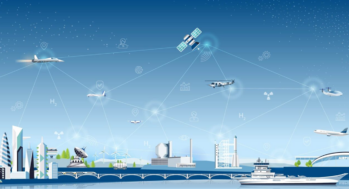Powering the energy transition with smart, sustainable engineering
Decarbonising energy systems is a cornerstone of the global net-zero transformation. To achieve climate targets, industries must shift away from conventional energy sources and adopt clean, efficient alternatives—without compromising performance, safety, or resilience.
From hydrogen to e-fuels, electrification to carbon capture, the challenge is complex and highly technical. It calls for in-depth engineering expertise and system-wide thinking to design, validate and implement energy solutions that meet tomorrow’s demands.
At Airbus Protect, we help our clients navigate the energy transition by providing expert support across the entire energy and fuel value chain—from R&D and design to operations and infrastructure development.
We combine strong domain knowledge in industrial and aeronautical systems with cutting-edge insights into new fuels, electrification, and decarbonisation technologies. Whether you’re designing future programmes, scaling low-carbon infrastructure, or exploring hydrogen integration, our teams ensure your projects are future-proof and regulation-ready.
With us, the energy transition becomes a catalyst for innovation, not a barrier.





